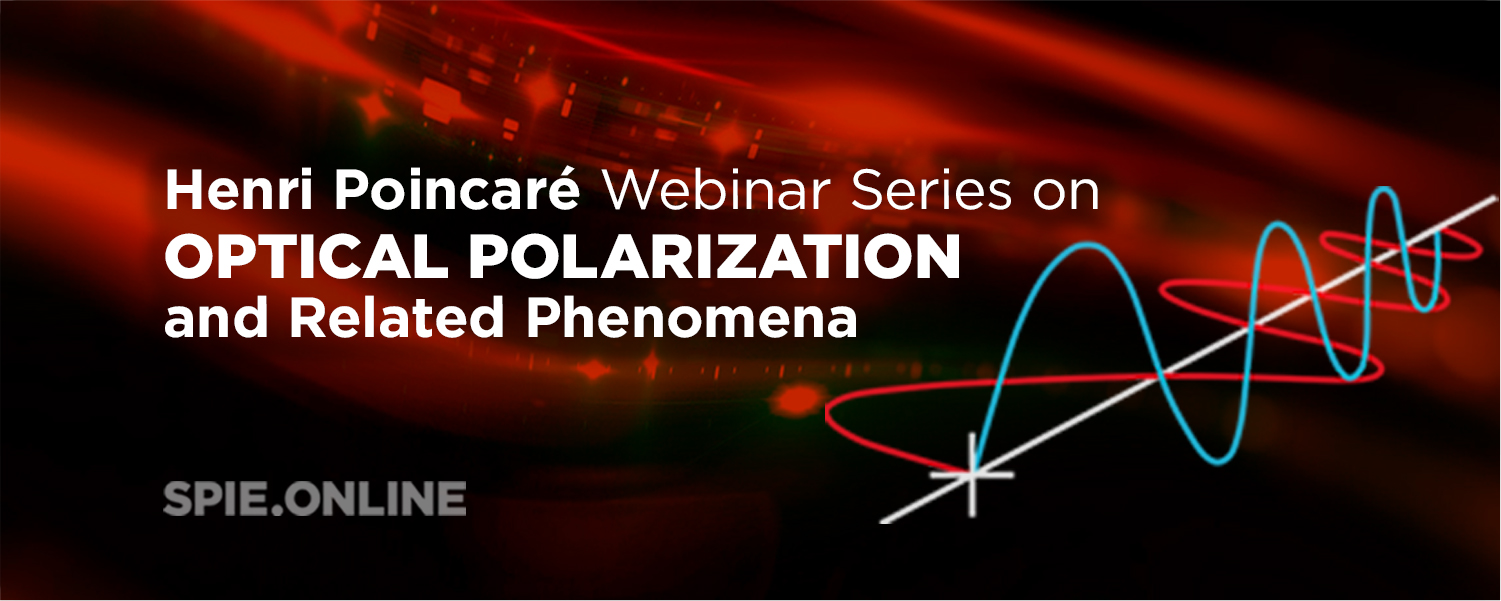
Each month, experts from across different disciplines and technology application areas present new discoveries and advances in optical polarization and related topics. With a commitment to extensive Q & A sessions, this series has a particular focus on engendering new collaborations and research opportunities for scientists in relevant fields. Read more about the chairs and volunteers behind this webinar series—a group dedicated to optical polarization and related phenomenon.
Presenter: Chris Sturm
Universität Leipzig | Germany
30 April 2024 | 2:00 PM PT
Abstract: In optically anisotropic media, there are generally two eigenmodes for a given propagation direction, which propagate without changing their polarization. However, for certain directions, these two eigenmodes can completely degenerate, in their eigenstate and eigenvalue. In this case, only a well-defined state can propagate without changing its polarization. Thus, the typically used approach to describe an arbitrarily polarized wave by a superposition of the two eigenmodes and to calculate the reflection and transmission properties at interfaces cannot be applied. Here we discuss the appearance of such singular eigenstates and how the propagation and interface properties can be calculated.
Presenter: Enrique (Kiko) Galvez
Colgate University | United States
28 May 2024 | 6:00 AM PT (13:00 UTC)
Abstract: The nonlocal correlations of polarization-entangled photon pairs have been thoroughly demonstrated in tests of Bell-inequality violations. They involve two components: polarization measurements on each photon. Classical polarimetry also involves two components: the preparation of the polarization of the initial state of the light, and its detection via polarization measurements. Polarization-entangled light can be used for the same purpose by exploiting the quantum state's nonlocal property: the measurement's two components can be done on distinct (but entangled) photons in remote locations. In this talk, I describe a new form of Mueller polarimetry with nonlocal properties.
Presenter: Theodora Karalidi
Univ. of Central Florida, Planetary Sciences Group | United States
25 June 2024 | 2:00 PM PT
Abstract: With a few thousand exoplanets and brown dwarfs known to date, the field entered the era of their characterization and comparative studying. Traditional flux-only observations though, suffer from a number of degeneracies that hinder the characterization of these worlds. In this talk I will discuss why polarimetry is a key tool for studying worlds outside our Solar system, from brown dwarfs all the way to finding life on "Earth 2.0", and why it is imperative we take it into account when building the next generation of telescopes such as the Habitable Worlds Observatory.
Select your preferences for updates and newsletters to stay connected with your technical community. If you don't already have an account, sign up for a free SPIE account and enjoy access to research, discoveries in emerging technology, and updates from engineering project from around the globe.

National Institute of Standards and Technology (NIST)

École Polytechnique

Florida International University
Thomas A. Germer, a physicist in the Surface and Interface Metrology Group, Sensor Science Division, at the National Institute of Standards and Technology (NIST), leads this interdisciplinary series that brings together speakers from across the globe to explore topics derived from Henri Poincaré's work on optical polarization. The interactive investigations demonstrate contemporary applications of polarization techniques in various research areas and how they relate to each other, and are extended, for example, to non-paraxial optics.
"The reason I chose polarization science for this SPIE-hosted webinar series, is that this topic extends across nearly all of photonics," notes Germer. "Optical radiation is a vector field! And while there are conferences scattered around the world specifically related to certain aspects of polarization, they are often tied to specific applications whether those might be materials science, remote sensing, biomedical optics, or astronomy. One of the hopes for this series is that it will allow for energetic and lively discussions. In the end, I really hope to bring the global polarization-focused community together."
Webinar facilitators are Germer, Jessica C. Ramella-Roman of Florida International University, and the École Polytechnique's Tatiana Novikova. The program is supported by an international committee of volunteer leaders: Oriol Arteaga, University of Barcelona (Spain); Sophie Brasselet, Institut Fresnel (France); Nirmalya Ghosh, Indian Institute of Science Education and Research Kolkata (India); Ma Hui, Tsinghua University Shenzhen International Graduate School (China); Igor V. Meglinski, Aston University (United Kingdom); Valery V. Tuchin, Saratov State University (Russian Federation); and Scott Tyo, University of New South Wales (Australia).